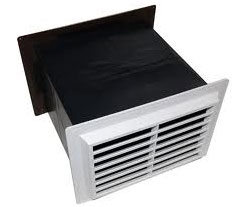
Categories
- Home
- Gas Ventilation Suppliers
- Armstrong Gas Ventilation
- Brasch Gas Ventilation
- ESV Gas Ventilation
- Gas Ventilation
- Go Green Gas Ventilation
- House Needs Gas Ventilation
- JCI Gas Ventilation
- Lindab Gas Ventilation
- Luxury Metals Gas Ventilation
- Radon Gas Ventilation
- Selkirk Gas Ventilation
- Tempest Gas Ventilation
- Tox Alert Gas Ventilation
- Varis Gas Ventilation
- Vent A Fume Gas Ventilation
- Gas Ventilation Explained
- Types Of Gas Ventilation
ESV Gas Ventilation
Being capable of handling gas ventilation at home can be quite daunting at first, especially because you may not be sure on what to do. The truth is that when it comes to the installation of ESV gas ventilation, your best bet is to have a licensed contractor do it for you, mostly because it’s imperative that you don’t leave any cracks or leaks. Moreover, the government has established particular regulations that ought to be followed when installing a complete ESV gas ventilationsystem, since this is performed to avoid the leakage of poisonous fumes.
Using Gas Effectively at Home
ESV Gas Ventilation strives to teach all homeowners how to use gas at home in an effective manner, since the misuse of it can lead to serious consequences. For example, your gas heater or gas boiler is most likely installed in the basement of your house, where the area is damp and cold. If you don’t make sure you install ESV Gas Ventilation, then there will be no air circulation and the fumes expelled might be hazardous for your family’s health. Moreover, in order to ensure the effective use of the gas coming in to your heater, you must clean the vents periodically and remove any dust or lint that may be trapped. If you don’t do so, then more gas will be consumed than what is really necessary, and your gas bill will be higher than usual.
Factors to Consider With ESV Gas Ventilation
Without a doubt, installing the proper ESV Gas Ventilation system is paramount in the correct functioning of any gas appliance. This means that in order for your gas boiler to work with no problems, a proper gas ventilation system must be installed in your basement. Keep in mind that there are regulations and guidelines that determine how the installation of ESV Gas Ventilation should be performed, and which are the things that shouldn’t be done. Moreover, there are numerous factors that should be taken into account prior to installing ESV Gas Ventilation, which are:
- Presence of system for air exhaustion
- Maintenance of ventilation
- Gas appliance type or category
- Main system of prospect ventilation
- Technique that will be used for flueing gas appliances
- Natural ventilation vs. Mechanical ventilation
Equipment Ventilation in General
Having an entire ESV Gas Ventilation system installed is surely no easy task and it should be performed by a licensed contractor. Choosing to do so has a few advantages in the long run, such as the fact that the installer is required by law to ensure that everything done during the installation is compliant with the local laws and regulations. Keep in mind that failing to install an ESV Gas Ventilation that works properly can be fined by the law, and can also pose a hazardous threat to the health of those living in the home. Furthermore, the equipment ventilation used for ESV Gas Ventilation follow the requirements stated by the same, such as the use of lighter gases as opposed to heavier gases, which produce a less intense pressure level in general.
